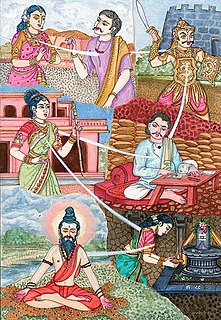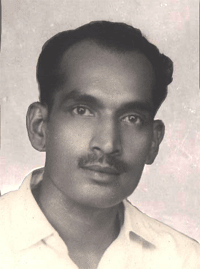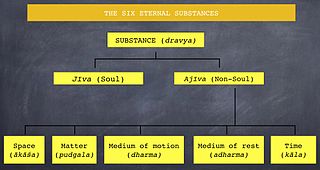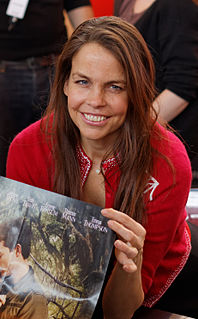This article needs additional citations for verification .(April 2012) |
The Okal Rel Universe (also referred to as the ORU) is the setting for a 10-novel series written by Lynda Williams.
This article needs additional citations for verification .(April 2012) |
The Okal Rel Universe (also referred to as the ORU) is the setting for a 10-novel series written by Lynda Williams.
The universe is a future where the cultural and biological evolution of the human race has divided it into two societies: "Gelacks" [1] and "Reetions". [2] Gelacks are dominated by the neo-feudal descendants of an ancient bioengineering project that modified humans to tolerate reality skimming. "Reality skimming" (also known as rel-skimming) is a physically and mentally strenuous method of faster than light space travel which underpins the economy and culture of the Okal Rel Universe. [3] The Reetions are the descendants of unmodified humans whose social system depends upon transparency moderated by a form of artificial intelligence known as arbiters. Each race has advantages and handicaps, physical or cultural.
One of the dominant themes of the ORU is an exploration of how those two societies settle conflicts. In the first novel in the series The Courtesan Prince, Gelacks and Reetions are obliged to take official notice of each other for the first time in 200 years.
Okal Rel is the belief system of the bio-engineered sub-species of humans called Sevolites, comes in a variety of sects, and is based on the sacredness of habitat as the stage on which souls are reborn. Most varieties link the prospects of rebirth to honorable behavior in life, as judged by other souls awaiting rebirth, and the availability of descendants. [4]
Jainism, also known as Jain Dharma, is an ancient Indian religion. Jainism traces its spiritual ideas and history through the succession of twenty-four Tirthankaras, with the first in the current time cycle being Rishabhadeva, whom the tradition holds to have lived millions of years ago, the twenty-third tirthankara Parshvanatha, whom historians date to the 9th century BCE, and the twenty-fourth tirthankara Mahavira, around 600 BCE. Jainism is considered to be an eternal dharma with the tirthankaras guiding every time cycle of the cosmology. The three main pillars of Jainism are ahiṃsā (non-violence), anekāntavāda (non-absolutism), and aparigraha (asceticism).

Karma in Sanskrit means an action, work, or deed, and its effect or consequences. In Indian religions, the term more specifically refers to a principle of cause and effect, often descriptively called the principle of karma, wherein intent and actions of an individual (cause) influence the future of that individual (effect): Good intent and good deeds contribute to good karma and happier rebirths, while bad intent and bad deeds contribute to bad karma and bad rebirths.

Reincarnation, also known as rebirth or transmigration, is the philosophical or religious concept that the non-physical essence of a living being begins a new life in a different physical form or body after biological death. Resurrection is a similar process hypothesized by some religions, in which a soul comes back to life in the same body. In most beliefs involving reincarnation, the soul is seen as immortal and the only thing that becomes perishable is the body. Upon death, the soul becomes transmigrated into a new infant to live again. The term transmigration means passing of soul from one body to another after death.

Saṃsāra is a Pali/Sanskrit word that means "world". It is also the concept of rebirth and "cyclicality of all life, matter, existence", a fundamental belief of most Indian religions. Popularly, it is the cycle of death and rebirth. Saṃsāra is sometimes referred to with terms or phrases such as transmigration, karmic cycle, reincarnation or Punarjanman, and "cycle of aimless drifting, wandering or mundane existence".
Orion's Arm is a multi-authored online science fiction world-building project, first established in 2000 by M. Alan Kazlev, Donna Malcolm Hirsekorn, Bernd Helfert and Anders Sandberg and further co-authored by many people since. Anyone can contribute articles, stories, artwork, or music to the website. A large mailing list exists, in which members debate aspects of the world they are creating, discussing additions, modifications, issues arising, and work to be done.

Panikkassery Keshavan Balakrishnan was an Indian novelist and critic. A doyen of Malayalam literature, he is best known for his novel, Ini Njan Urangatte, a novel based on Mahabharata as well as a number of critical studies which include Chandu Menon Oru Padanam, Novel - Siddhiyum Sadhanayum, Kavyakala Kumaranasaniloode and Ezhuthachante Kala : Chila Vyasabharatha Patanangalum. His work 'Jathivyavasthayum Kerala Charitravum is a work in social history. Kerala Sahitya Akademi awarded him their annual award for novel in 1974. He was also a recipient of the Vayalar Award and other honours.

John Birmingham is a British-born Australian author, known for the 1994 memoir He Died with a Felafel in His Hand, and his Axis of Time trilogy.
Lynda Williams is a Canadian science fiction author and blogger.

Martha Wells is an American writer of speculative fiction. She has published a number of fantasy novels, young adult novels, media tie-ins, short stories, and nonfiction essays on fantasy and science fiction subjects. Her novels have been translated into twelve languages. Wells has won four Hugo Awards, two Nebula Awards and three Locus Awards for her science fiction series The Murderbot Diaries. She is also known for her fantasy series Ile-Rien and The Books of the Raksura. Wells is praised for the complex, realistically detailed societies she creates; this is often credited to her academic background in anthropology.

Joseph Edward "Jay" Lake, Jr. was an American science fiction and fantasy writer. In 2003 he was a quarterly first-place winner in the Writers of the Future contest. In 2004 he won the John W. Campbell Award for Best New Writer in Science Fiction. He lived in Portland, Oregon, and worked as a product manager for a voice services company.
The Black Dagger Brotherhood is an ongoing series of paranormal romance books by author J. R. Ward. The series focuses on a society of vampire warriors who live together and defend their race against de-souled humans called lessers. The first book in the series was published in 2005.

American writer C. J. Cherryh's career began with publication of her first books in 1976, Gate of Ivrel and Brothers of Earth. She has been a prolific science fiction and fantasy author since then, publishing over 80 novels, short-story compilations, with continuing production as her blog attests. Cherryh has received the Hugo and Locus Awards for some of her novels.
MaryJanice Davidson is an American author who writes mostly paranormal romance, but also young adult literature and non-fiction. She is the creator of the popular Undead series. She is both a New York Times and USA Today bestseller. She won a 2004 Romantic Times Reviewers’ Choice Award and was nominated for the same award in 2005. Davidson lives in Minnesota with her husband and two children. She grew up on military bases and moved often, as she was the child of a United States Air Force soldier. Pamela Clare of USA Today wrote, "It's Davidson's humor, combined with her innate storytelling ability and skill with dialogue, that has lifted her from small presses to the big best-seller lists."
This is a list of books by Mercedes Lackey, arranged by collection.
Jīva or Atman is a philosophical term used within Jainism to identify the soul. As per Jain cosmology, jīva or soul is the principle of sentience and is one of the tattvas or one of the fundamental substances forming part of the universe. The Jain metaphysics, states Jagmanderlal Jaini, divides the universe into two independent, everlasting, co-existing and uncreated categories called the jiva (soul) and the ajiva. This basic premise of Jainism makes it a dualistic philosophy. The jiva, according to Jainism, is an essential part of how the process of karma, rebirth and the process of liberation from rebirth works.

Dravya means substance or entity. According to the Jain philosophy, the universe is made up of six eternal substances: sentient beings or souls (jīva), non-sentient substance or matter (pudgala), principle of motion (dharma), the principle of rest (adharma), space (ākāśa) and time (kāla). The latter five are united as the ajiva. As per the Sanskrit etymology, dravya means substances or entity, but it may also mean real or fundamental categories.
In a writing career spanning more than 60 years (1946–2008), American science fiction and fantasy author Philip José Farmer published almost 60 novels, over 100 short stories and novellas, two "fictional biographies", and numerous essays, articles and ephemera in fan publications.

Brad R. Torgersen is an American science fiction author whose short stories regularly appear in various anthologies and magazines, including Analog Science Fiction and Fact and Orson Scott Card's Intergalactic Medicine Show.

Margaret Stohl is an American novelist. She is the author of 14 novels, as well as 5 volumes of comics and several videogames. She lives in Santa Monica, California.